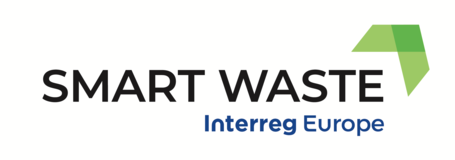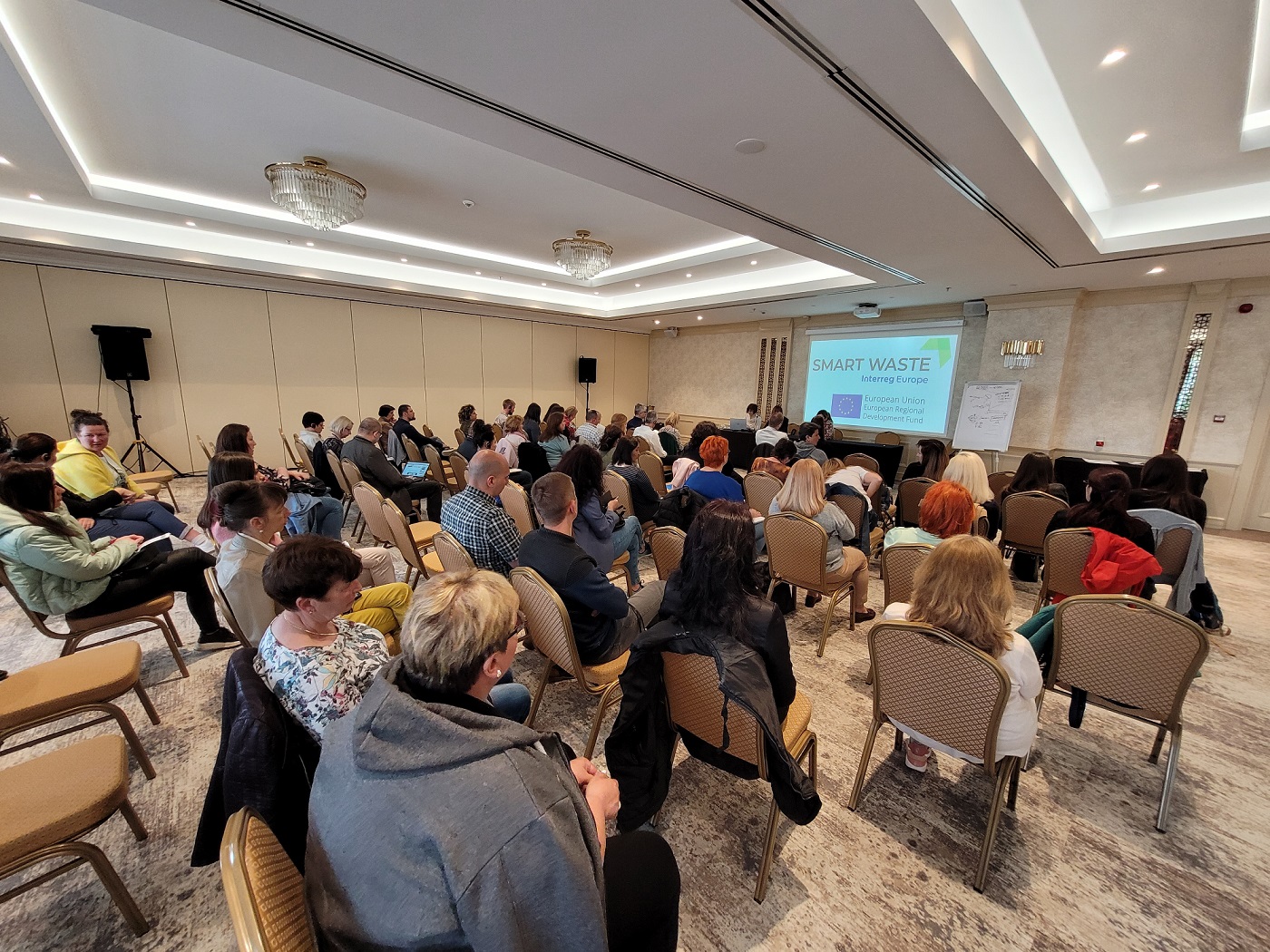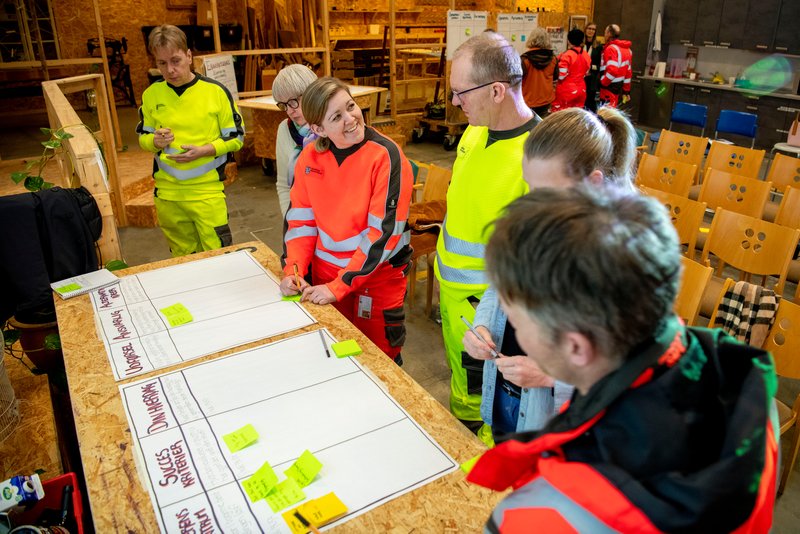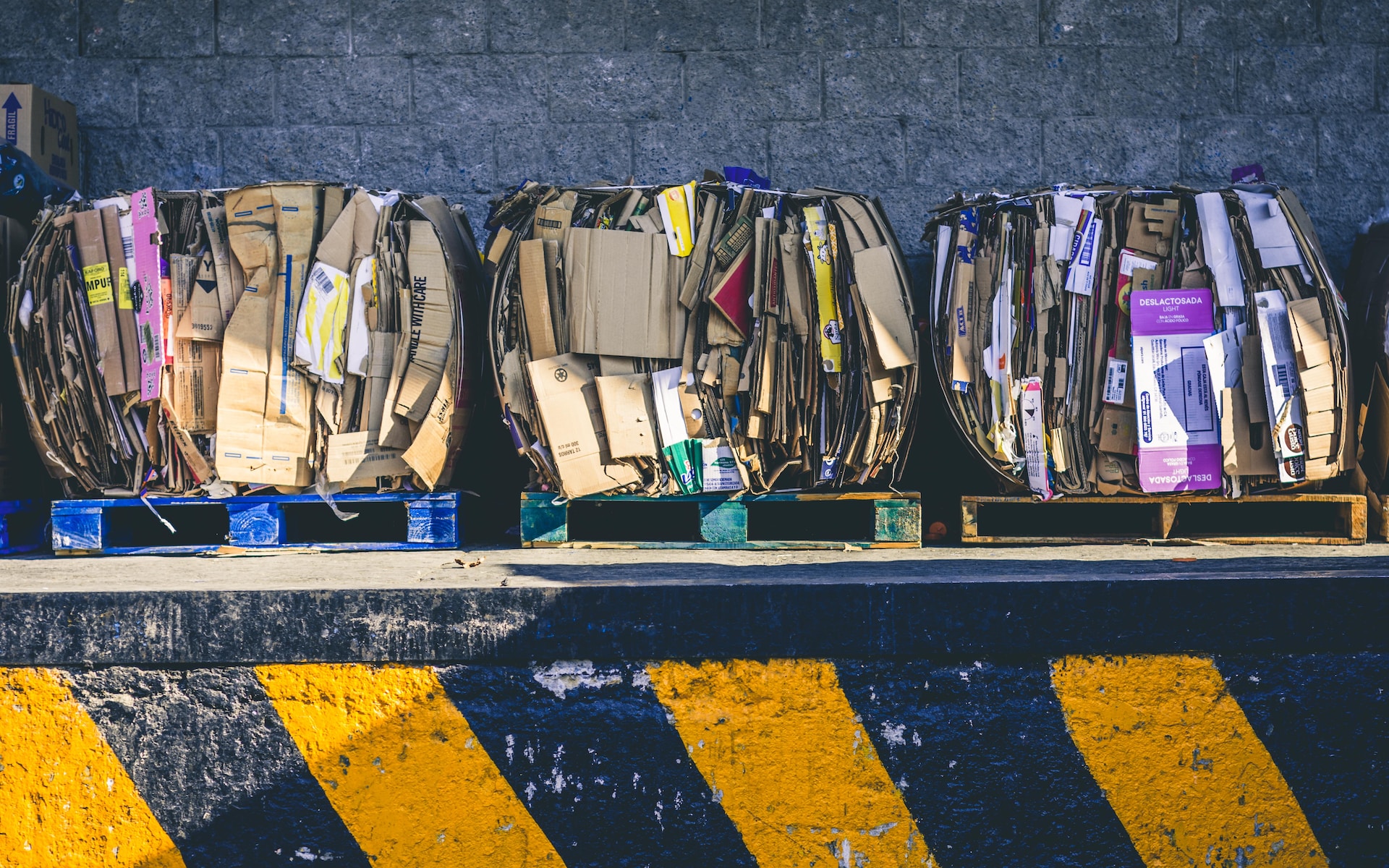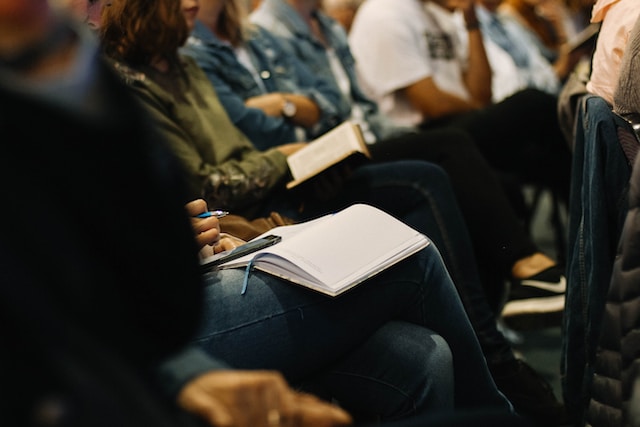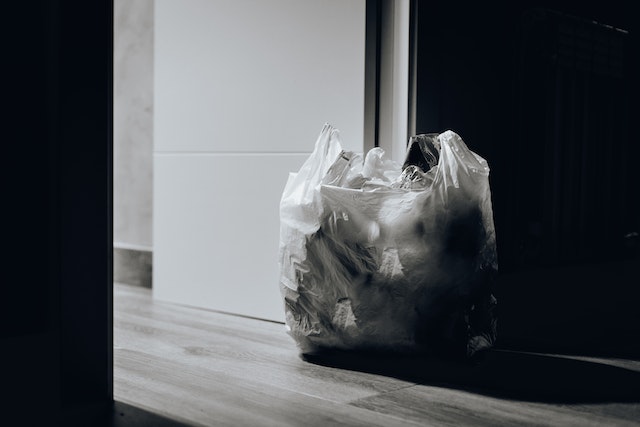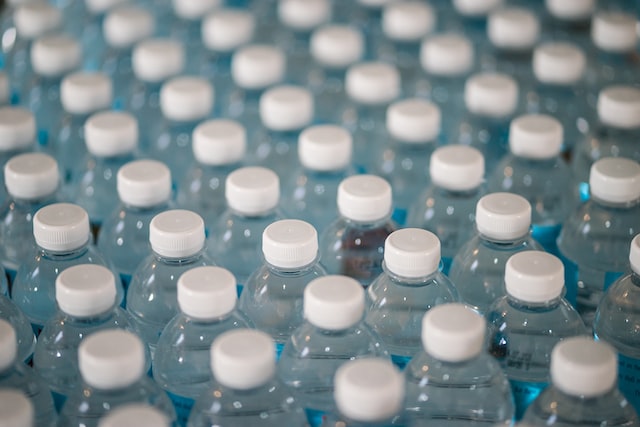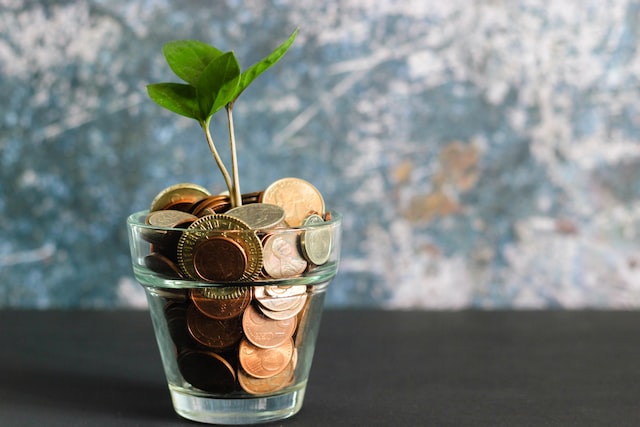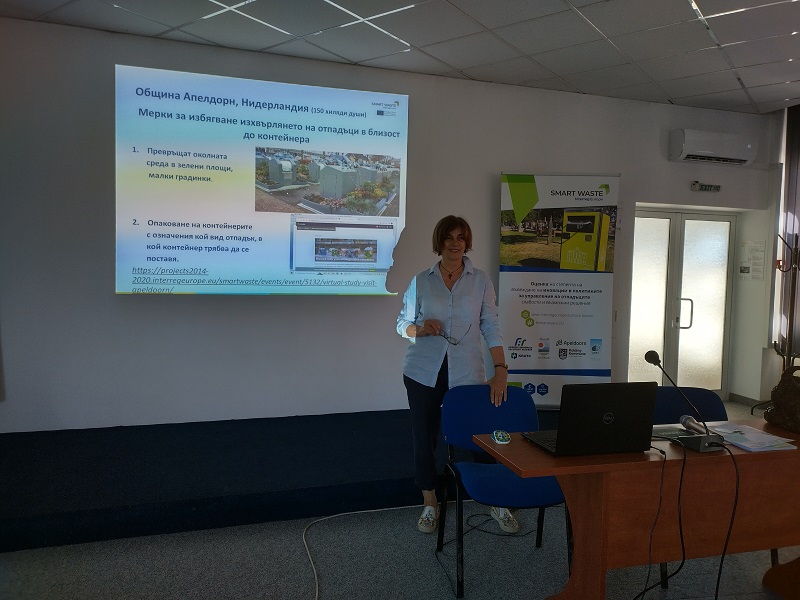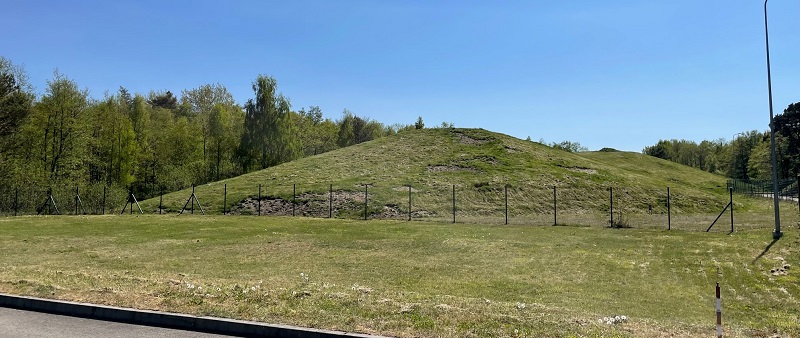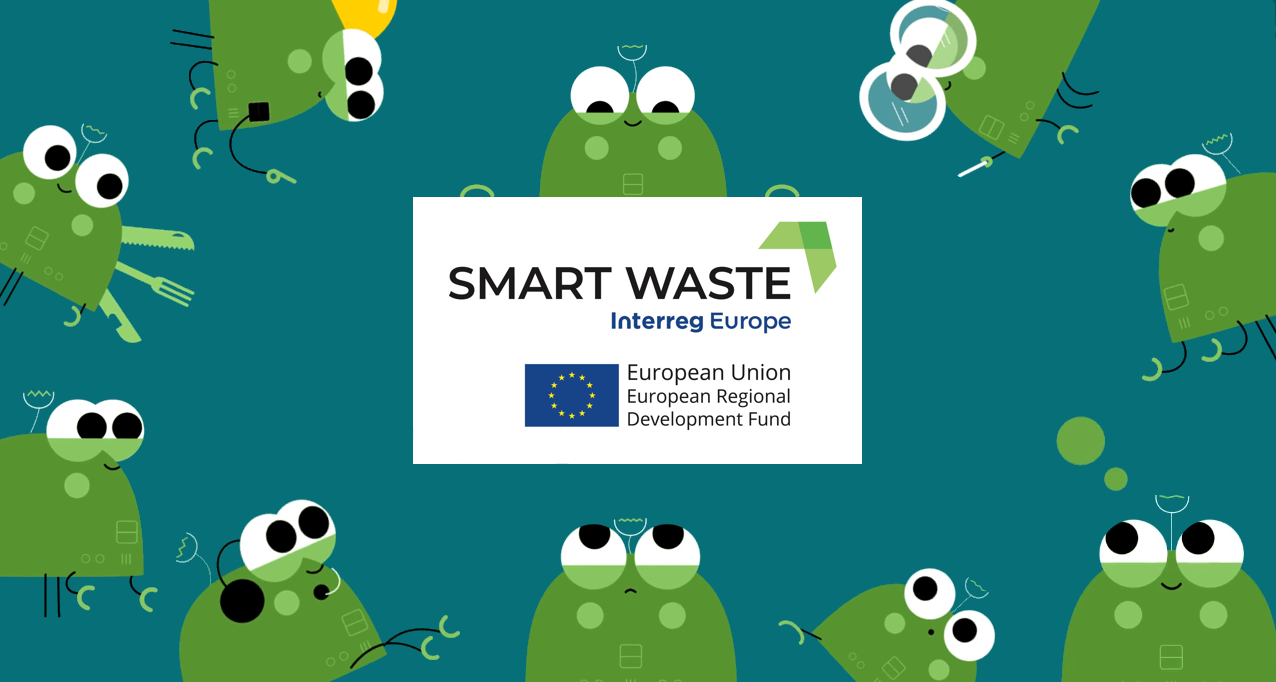Five SMART WASTE partners, namely the Lead Partner ARRR, Municipality of Kolding, Municipality of Apeldoorn, Bulgarian Association of Municipal Environmental Experts (BAMEE) and Klaipeda Regional Waste Management Centre (KRWMC) met online on 5th of May in order to have a focused discussion on specific topics of interest for SMART WASTE policy improvements development. This meeting was a follow up of two trilateral meetings held in April and it provided opportunity to discuss the following topics:
o National and local waste management data collection systems applied in each partner’s respective territory, following a specific request from BAMEE;
o Partner’s experiences with stakeholders’ involvement in waste management policy instruments development and evaluation, following a specific request from Kolding.
In preparation for the meeting, partners shared a list of questions to be discussed and answered concerning both topics whereas each partner had provided written answers in advance.

The specific questions addressed during the meeting were:
o Evaluation (of projects, services, policies, strategies, etc.): What do you evaluate? What parameters do you consider for evaluation (e.g. qualitative versus quantitative)? How often do you undertake the evaluation(s)? Who is in charge of the evaluation? Is the evaluation used for anything after being performed?
o Involvement (of citizens, companies, employees in the development of projects, services, policies, strategies, etc.): When do you involve citizens? When do you involve companies? How do you involve citizens and/or companies? (e.g. meetings, workshops, surveys, interviews, other);
o Waste management data collection systems:
o Are there national/regional/local data collections systems concerning waste management imposed by the law/regulations or some other waste management related acts?
o Which public authorities are in charge of collecting the data?
o Frequency of data collection (real time, monthly, yearly)?
o Which kind of waste streams are covered e.g. municipal waste, waste from other sources?
o Is the system mandatory and who is supposed to provide the data to the public authorities (e.g. waste producers, waste recovery and disposal plant, waste collection companies)?
o Which kind of data are to be provided by whom (e.g. data on waste generation, transport, treatment, etc.)?
o Who has access to the database and what kind of information is publicly available? Is it possible the information system to be used for the purposes of the circular economy?
o Are there any tools for tracking or control of waste transport (GPS or other)?
o How is the identification of the waste generators, households or businesses assured?
o How is the waste data generated in the waste management process? At which points in the process is it collected (e.g. at the entrance point of landfills, at collection vehicles)? Is it automatically collected through machine and measuring tools or manually generated through a human input?
o The information is collected for statistic and calculation of waste taxes, but at what level - individual household, business, city areas?
The meeting was an opportunity for sharing each partner’s experiences and expertise on all the above listed topics, especially in order to highlight further support to policy improvements development in the framework of ongoing activities in Phase 1 of SMART WASTE project.
Partners also confirmed that planned study visits, as approved in the project Application Form, will take place as soon as travelling restrictions introduced by European and national regulation are lifted. As a follow up of this meeting, the LP will draft and share with partners a summary matrix on the main features of existing data collection systems on waste management in partners’ respective countries.
Last but not least, the Municipality of Kolding reported a recent meeting with a Danish member of the European Parliament as well as a group of local politicians. Topic of the meeting was an informal assessment of the EU funding contributions to the local activities so SMART WASTE was discussed as an example of a good practise in this regard.
